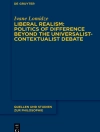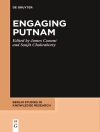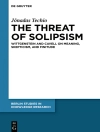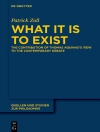The capability approach of Martha Nussbaum and Amartya Sen places human capabilities at the centre stage of discussions about justice, equality, development and the quality of life. It rejects too much emphasis on mere preference satisfaction or resource provision and highlights the importance of human agency and freedom. This approach has already significantly influenced different fields of application, such as economics and development studies. Only recently have scholars started to explore its relevance for and application to the area of technology and design, which can be crucial factors in the expansion of human capabilities. How does technology influence human capabilities? What difference could a capability approach make to policies and practices of applying ICT in development processes in the South? How can we criticize and improve the design of technology from the perspective of the capability approach?
The authors of this volume explore the implications of the capability approach for technology & design and together create the first volume on this emerging topic.
İçerik tablosu
PART I – INTRODUCTION.- 1. The Capability Approach and Technology: Taking Stock and Looking Ahead; Ilse Oosterlaken.- 2. Human Capabilities and Technology; Jeroen van den Hoven.- PART II – TECHNOLOGY.- 3. Liberation from / Liberation within: Examining ‘One Laptop Per Child’ with Amartya Sen and Bruno Latour; Kim Kullman and Nick Lee.- 4. Evaluating Emerging ICTs: A Critical Capability Approach of Technology; Yinqin Zheng and Bern Carsten Stahl.- 5. “How I Learned to Love the Robot”: Capabilities, Information Technologies, and Elderly Care; Mark Coeckelberg.- 6. Towards a Sustainable Synergy: End-use Energy Planning, Development as Freedom, Inclusive Institutions and Democratic Technics; Manu V. Mathai.- 7. Marrying the Capability Approach, Appropriate Technology and STS: The Case of Podcasting Devices in Zimbabwe; Ilse Oosterlaken, David J. Grimshaw and Pim Janssen.- 8. From Individuality to Collectivity: The Challenges for Technology-oriented Development Projects; Álvaro Fernández-Baldor, Andrés Hueso and Alejandra Boni.- 9. Technology Choice in Aid-Assisted Parliamentary Strengthening Projects in Developing Countries – A Capability Approach; Malik Aleem Ahmed.- PART III – DESIGN.- 10. Design, Risk and Capabilities; Colleen Murphy and Paolo Gardoni.- 11. Re-conceptualizing Design through the Capability Approach; Crighton Nichols and Andy Dong.- 12. Processes for Just Products: The Capability Space of Participatory Design; Alexandre Apsan Frediani and Camillo Boano.- 13. Inappropriate Artifact, Unjust Design? Human Diversity as a Key Concern in the Capability Approach and Inclusive Design; Ilse Oosterlaken.- About the authors.- Name index.- Subject Index.
Yazar hakkında
Ilse Oosterlaken is one of the pioneering authors in the area of the capability approach, technology and design. She is co-founder of a thematic group on this topic within the Human Development & Capability Association (HDCA) and organizer of the very successful 2011 HDCA conference, with ‘innovation’ as its theme. Recently she was co-guest-editor of a special issue of Ethics and Information Technology on the capability approach.
Jeroen van den Hoven is scientific director of the 3TU.Centre for Ethics and Technology and full professor in moral philosophy at TU Delft, specializing in the ethics of information technology. He is editor-in-chief of the journal Ethics and Information Technology. He is project leader of an NWO-funded multidisciplinary research project ‘Technology for Development – A Capability Approach’, in which co-editor Ilse Oosterlaken also works as one of the researchers.












